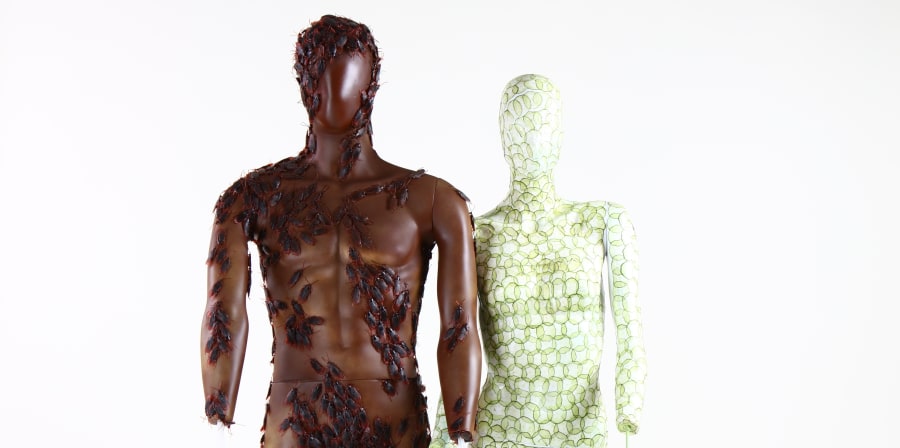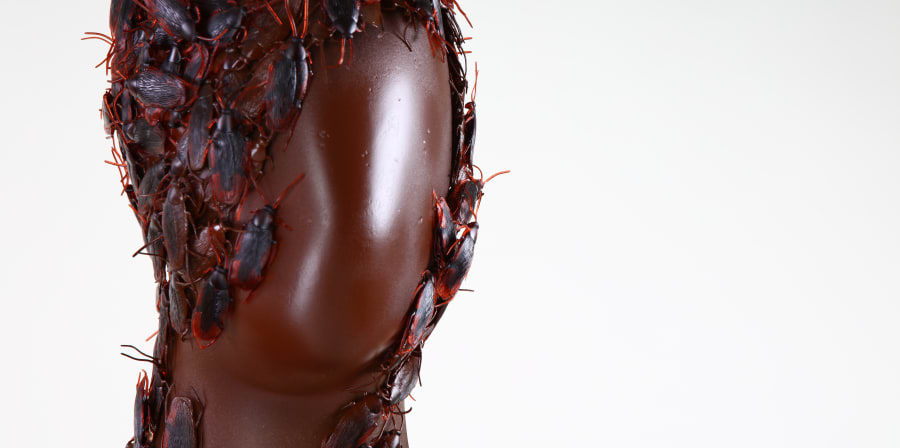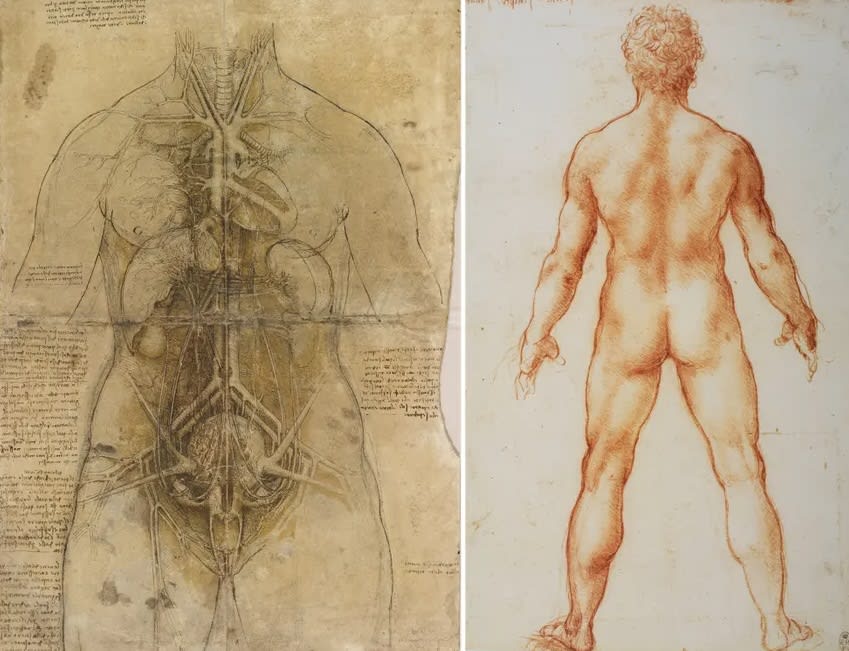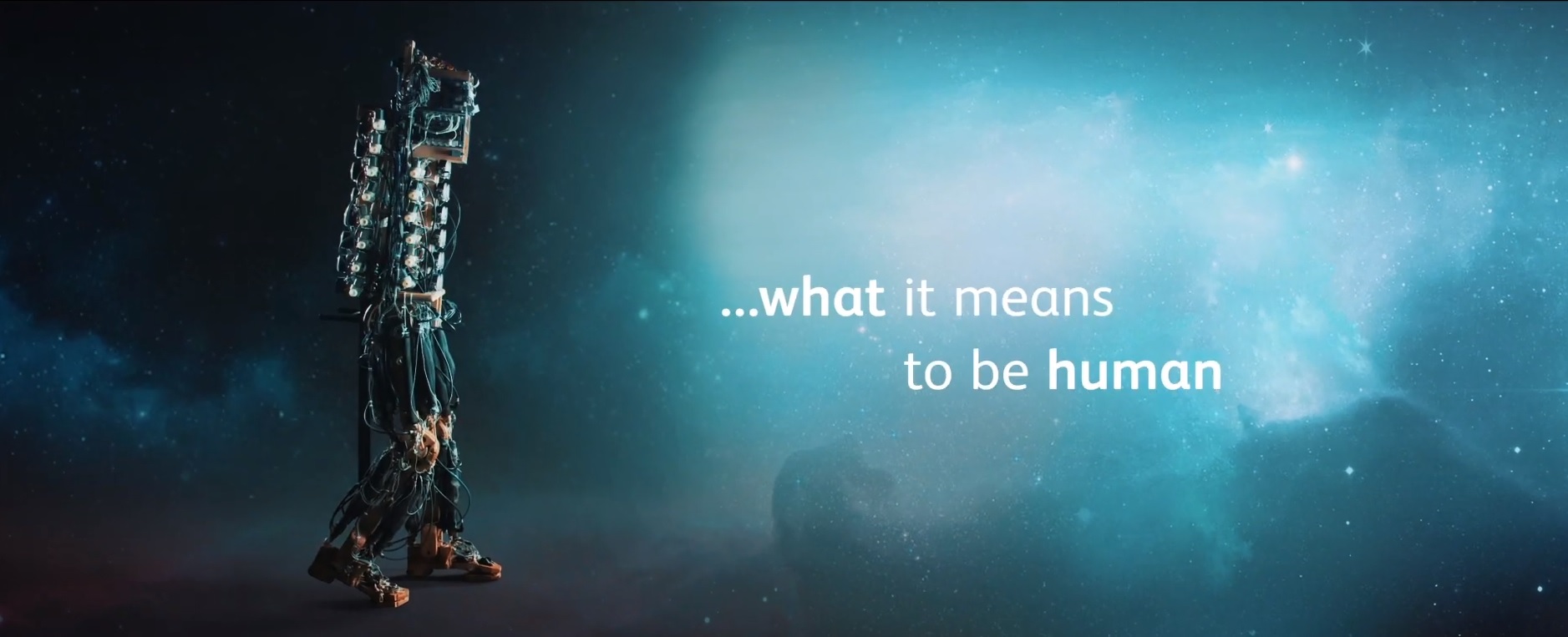By Philippa Kate Weaver, MFA Fine Art, Wimbledon
This month you can view Leonardo da Vinci’s prophetic drawings of future technologies in A Life In Drawing, the history of robot design that “reveals our quest to make machines human” in Robots, visions of the future in Is This Tomorrow? and Postopia, an exhibition that explores how technology is changing human behaviour.
Clearly our 500-year obsession with technology is alive and well and is feeding exhibitions in galleries and museums across the country. But what drives this obsession? What lies at its root? Could it be our very human need to abdicate responsibility – and will our fascination turn us into future gods or slaves?
Will our future world be a utopia, dystopia, or something else: a “Postopia”?
From the wish to give the job of cleaning the toilets to someone else, to the reliance on “likes” to fulfil social needs, to our desire to use democracy to make even the most ignorant feel equal, to the yearning to hand over responsibility for our souls to a god, humans are very good at outsourcing.
Kafka wrote in The Metamorphosis about an abdication of responsibility. A man who doesn’t want the responsibility of his job and family but also who couldn’t bear the guilt of abandoning them, wakes one morning as a human sized cockroach. He clearly can no longer provide for his family, and since being a cockroach isn’t his fault, he bears no guilt. He is free. Except that his metamorphosis isolates him completely from all he knows and he wastes away, eventually dying, imprisoned in a garbage filled room, unable to connect with others.
We can learn a great deal from this cautionary tale: Abdicate responsibility and the meaning in living our lives disappears.
As Brene Brown says, “what you realize is that connection is why we're here. It's what gives purpose and meaning to our lives. This is what it's all about. The ability to feel connected, is - neurobiologically that's how we're wired - it's why we're here.”
Viktor E. Frankl, in Man's Search for Meaning, wrote that: “Ultimately, man should not ask what the meaning of his life is, but rather must recognize that it is he who is asked. In a word, each man is questioned by life; and he can only answer to life by answering for his own life; to life he can only respond by being responsible.”
So perhaps meaning can be found in taking responsibility for connecting with others.

According to Brene Brown, “the one thing that keeps us out of connection is our fear that we're not worthy of connection.” Connections make us vulnerable. And “although vulnerability is the core of shame and fear and our struggle for worthiness, it is also the birthplace of joy, of belonging, of love, of creativity”.
Perhaps we can consider the idea that our search for a meaning for life is a drive created by a neurobiological vulnerability formed upon separation from our mothers in infancy (read Bowlby & Ainsworth and many others for more on this) .
This idea leads to the theory that upon separation from our mothers a psychological “hole” is created within us which means that we spend our lives attempting to fill this “hole”. We try work, love, sex, god, food, drugs, philosophy, procreation… The bigger the psychological “hole” we personally have, the more extreme (and often destructive) our search to fill it. This search is what essentially drives us to achieve anything (regardless of what definitions of success might be used). Our levels of accomplishment can be directly related to how empty this “hole” remains. Fill this “hole” (however temporarily) and often the drive to take responsibility and to achieve disappears. We are, for a moment, perhaps content. But fill this “hole” and potentially our drive to achieve and our ability to take responsibility for our lives evaporates.
If at the root of our obsession with creating technology that “does stuff for us”, is our need to abdicate responsibility for that “stuff” (for decision making, for the effort that goes into connecting with others, for finding a reason to live) then what happens when the inevitable creation of an Artificial Intelligence (AI) comes to pass?
Imagine a software that provides us with a filler for our psychological “hole”. An artificial emotional intelligence that is a perfect pollyfiller and replaces work, love, sex, god… and frees us of our emotional pain. This is not too far off the present to be unimaginable. One can easily predict that our smart phones become smarter and smarter and that we will continue to love the ease and helpfulness of these amazing tools. Many of us already abdicate some responsibility for making “connections” with others, to our smart phones. For some of us, our smart phones are our best friend.

Can we ignore the fundamental weirdness of finding fulfilment in gathering likes? Can we ignore that we feel connected to others even though all we are really connecting to is a screen?
Our phones mitigate and mediate our fear and vulnerability. Right now, the apps on our phones are not clever enough to do this well (recent much publicized tragedy blamed on Instagram illustrates this) but what if future software allows perfect connections, without fear? Do we lose our shame and struggle but get to keep love and creativity?
Why not leave the responsibility for all the “stuff” to this trusted higher functioning all-knowing entity? Perhaps because the advent of AI really means the abdication of all responsibility for our lives and therefore, if Brown and Frankl are to be believed, the loss of all meaning for life.
Do we have the wisdom to deal with such an eventuality? Potentially our gathering of knowledge outpaces our growth in wisdom. As Isaac Asimov, that technology prophet, has said, “The saddest aspect of life right now is that science gathers knowledge faster than society gathers wisdom.”
Few of us have the wisdom (or the money for the psychotherapy sessions) to overcome this drive, and our personal ways of dealing with it, alone. Approach it intellectually and we can at least become aware of what drives our decision-making processes.
Replace our software with Kafka’s cockroach and suddenly we see that our technology is saving us from the responsibility of true connection with other people. The software is duplicitous: since it allows us to feel connected with many people, we abdicate responsibility to it – but we are not truly connecting so we become isolated.
What if future AI is so good at freeing us of all our responsibility that our psychological “hole” becomes filled? Do we then lose our drive to “succeed” in working at jobs or developing healthy human relationships? And then, with nothing to do and nothing to fear, do we become meaningless and (if we take Kafka’s metaphor to the end) die?
Or maybe a future AI that fills our psychological “hole”, would actually free us of our psychological shortcomings. We would be free to really be out in the world doing interesting stuff (not cleaning the toilets), taking responsibility, self-actualizing, being utterly creative, connecting with people without shame. We would be truly content. We would be unburdened and free. Maybe this AI becomes a god we can all believe in. Maybe we find the wisdom to self-actualize and reach a pinnacle of human development. Maybe we become god-like.
Will our obsession with technology create a future AI that destroys the thing that makes humans amazing (our drive to achieve and take responsibility for our lives and for the lives of others) or do we have the wisdom to use technology to enable us to create a wonderful, and yet unimagined, “Postopian” new world?
Related exhibitions:
Robots at the National Museum of Scotland, Edinburgh #RobotsExhibition
Leonardo da Vinci Royal Collection, across the country
Tomorrow? Whitechapel Gallery, London
Connect with the Uncovered Collective:


